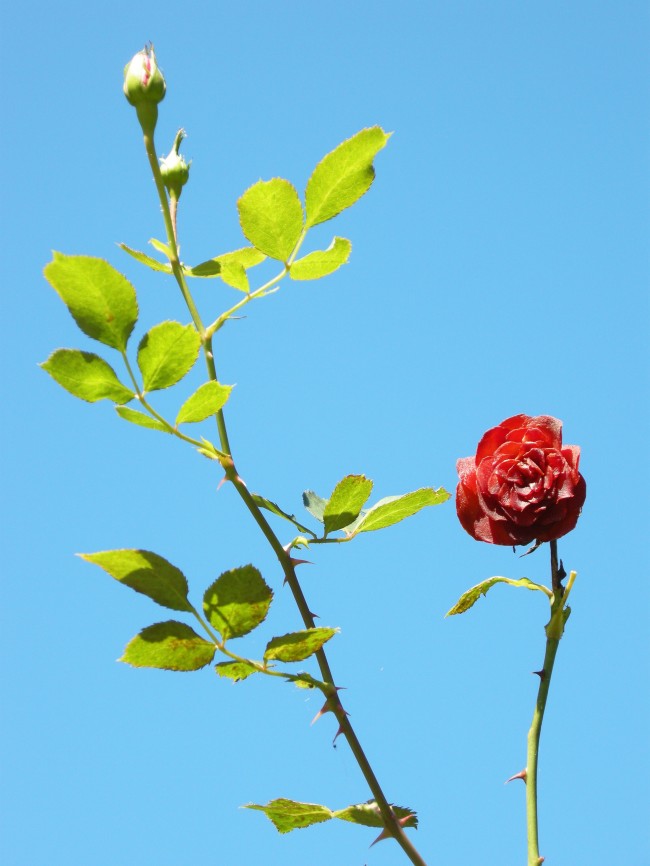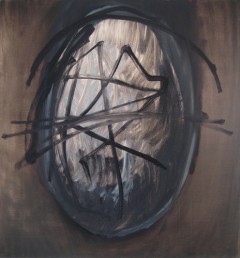Essays Askold Melnyczuk, Heide Hatry — October 30, 2011 14:40 — 2 Comments
The Loves and Lusts of a Horticulturalist – Askold Melnyczuk, Heide Hatry
Essay by Askold Melnyczuk and Photograph by Heide Hatry
from the forthcoming book Not a Rose
Flowers are flirts. Like strippers in a church, they will not be overlooked. They can’t help it. They were born that way, sex organs on their sleeves. Kind of like Lady Gaga. Both invite us to speculate about appearances and time.
For poets, roses once reported life is short. Heat cools. But poets are cowards, and lazy to boot. They sang roses—span’s forever to a lily, whose biological clock chimes with the sun.
Flowers bring us to our eyes, yet their implications vary by latitude. For northerners, they signal easy raptures and loose sprawls. In the evergreen south, they mediate the sheer fecundity of being.
Like lips tricked with rouge or breasts empowered by implants, flowers use strategies unnatural as only nature can be: the lilies’ petals pout and spill with sweet disorder, far beyond what’s called for…but then, we made them too—bred them for our pleasure, groomed them like cheerleaders buffed for daddy in the bleachers.
What we see gives little clue to what we get, in time.
But, flies on an orchid of offal? Certainly. I mean, why not?
Hatry’s bedeviling constructs are artful as nature.
A Tibetan lama once described the bardo—that state we enter after death, before the next round—as being like Paris at rush hour. Lights scream by, flying at you, better duck or you’ll get hit. Guy can spend forty days in such a state before finding the next life. The problem, the lama explained, is that most people don’t know how to choose. They see an image—a certain kind of man, a pretty woman, a sexy house—and run toward it, et voila: they awaken as bedbugs. In death, as in life, appearances deceive. That little we know.
2 Comments
Leave a Reply
The answer isn't poetry, but rather language
- Richard Kenney





Brilliant writing and stunning photography. I’d like to know where I can find that Rimbaud novella. Haven’t read anything really good on him since James Ramsey Ullman’s “The Day on Fire,” and Henry Miller’s “The Time of the Assassins.”
I’ll be looking for it.